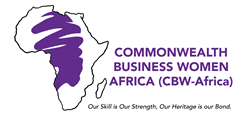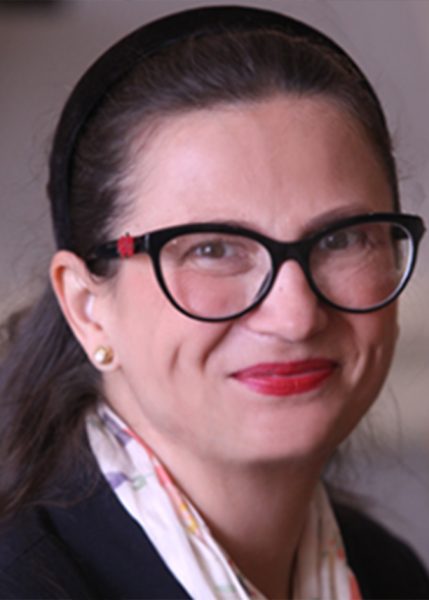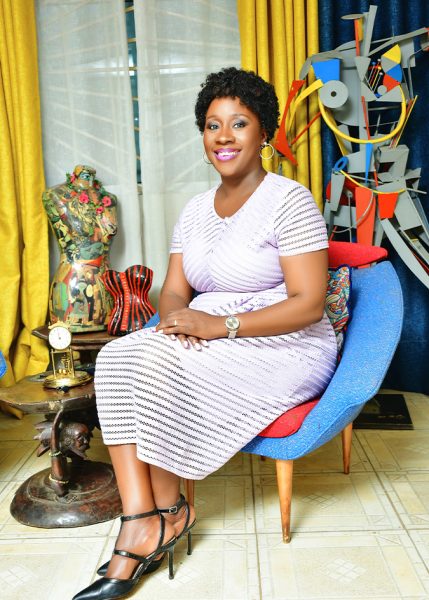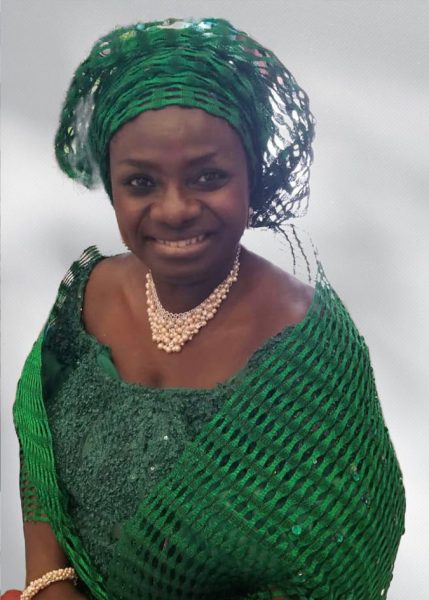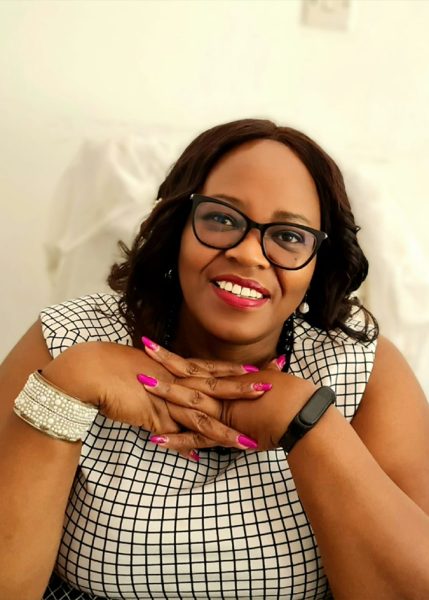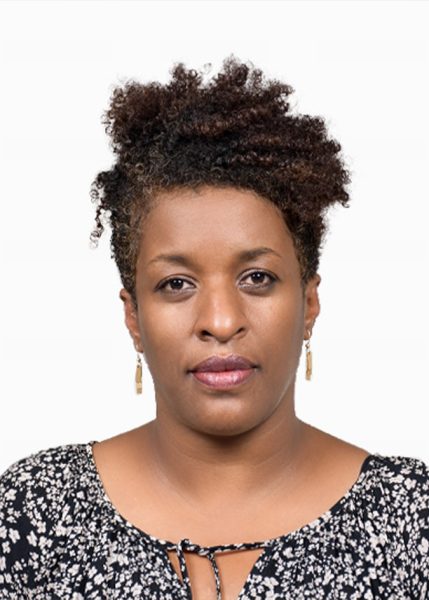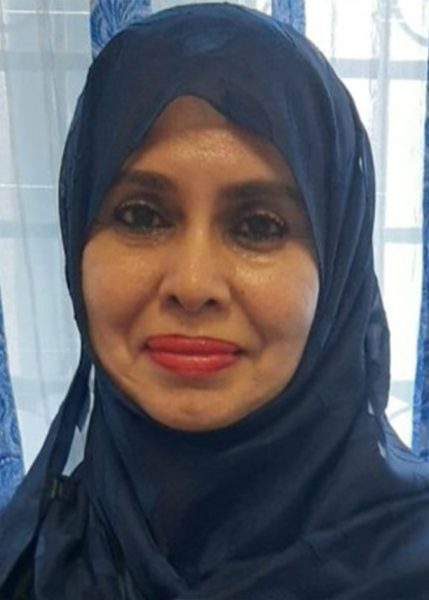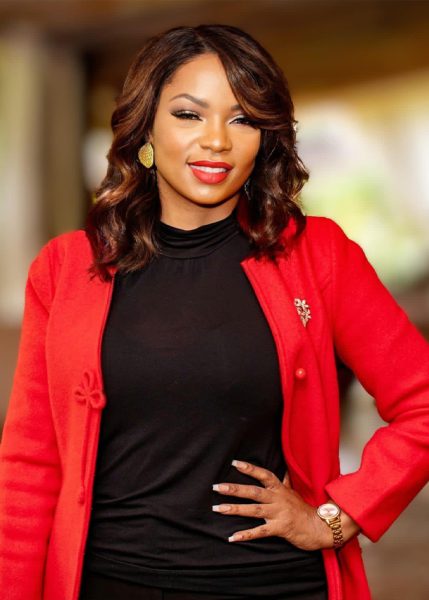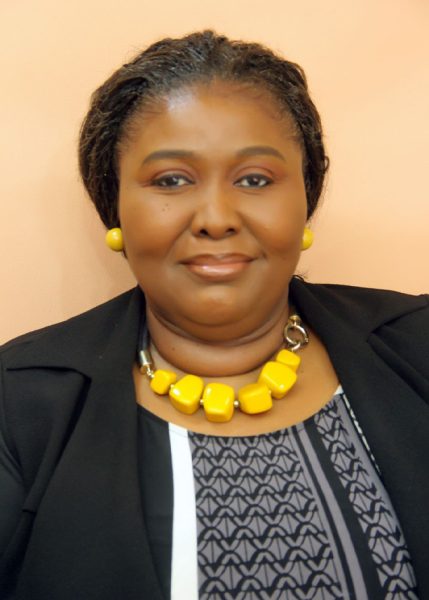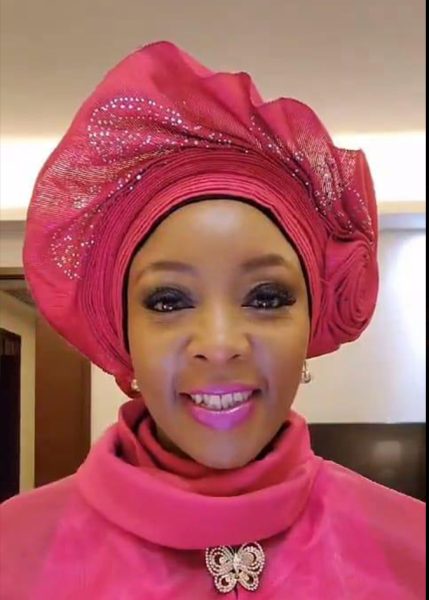Fact Sheet: Vice President Harris Launches Global Initiatives on the Economic Empowerment of Women, Totaling over $1 Billion
Promoting gender equity and equality is a cornerstone of U.S. foreign policy in Africa and around the world. Advancing the economic status of women and girls is not only a matter of human rights, justice, and fairness—it is also a strategic imperative that reduces poverty and promotes sustainable economic growth, increases access to education, improves health outcomes, advances political stability, and fosters democracy.
In particular, the digital gender gap undermines women’s full participation in the 21st century economy. Globally, approximately 260 million more men than women were using the internet in 2022—and this gap has increased by 20 million in the last three years. The gap is especially acute across Africa, where International Telecommunication Union data show that sixty-six percent of women do not use the internet.
To address this disparity, the Biden-Harris Administration will continue to work with other governments, private sector, foundations, and multilateral organizations to help close the digital divide, improve meaningful access to equitable digital finance and other online services, and address social norms that prevent women from participating fully in the digital economy. More broadly, the Biden-Harris Administration will continue to promote the economic empowerment of women.
In support of these goals, in Accra, Ghana, the Vice President is announcing a series of investments and initiatives—from the U.S. government, and in response to her call for investment from the private sector, and philanthropic community. The Vice President is also making a series of announcements on behalf of the Biden-Harris Administration to foster women’s political, economic, and social inclusion in Africa, building upon initiatives launched at the U.S.-Africa Leaders Summit in December 2022, including the Digital Transformation with Africa (DTA) Initiative.
.
- $60M to Launch the Women in the Digital Economy Fund: The U.S. Agency for International Development and the Bill & Melinda Gates Foundation are announcing a new fund to accelerate closing the gender digital divide, with a combined investment of $60 million, at least half of which will focus on Africa.
- Nearly $400M in Private Sector Commitments to Support Closing the Gender Digital Divide: These commitments, totaling nearly $400 million, support the key pillars guiding the work of the U.S. government to close the Gender Digital Divide.
- $528M in Private Sector Commitments to Support of Women’s Economic Empowerment in Africa: These commitments, totaling over $528 million, support gender programming more broadly.
- $47M U.S. Government Initiatives to Advance Gender Equality Across Africa: These initiatives, totaling over $47 million, represent new announcements and initiatives on behalf of the Biden-Harris Administration to foster women’s political, economic, and social inclusion in Africa, building upon initiatives launched at the U.S.-Africa Leaders Summit in December 2022.
Women in the Digital Economy Fund
The U.S. Agency for International Development and the Bill & Melinda Gates Foundation are announcing the Women in the Digital Economy Fund, a joint effort toward closing the gender digital divide. USAID will commit $50 million and the Gates Foundation will commit $10 million respectively by 2026, with at least half of these resources focused on Africa.
This new Fund will accelerate progress to close the gender digital divide by scaling evidence-based, proven solutions that improve women’s livelihoods, economic security, and resilience. The Fund will support programs that advance digital access and affordability; develop relevant products and tools; provide digital literacy and skills training; promote online safety and security; and invest in gender-disaggregated data and research.
USAID will mobilize its commitment to this effort, subject to the availability of funds, alongside additional U.S. government initiatives focused on advancing gender equality and digital connectivity in Africa as part of the DTA.
Additional Private Sector and Philanthropic Commitments to Support Closing the Gender Digital Divide
The Vice President is announcing nearly $400 million in private sector and philanthropic commitments, made in response to the Vice President’s call to support the key pillars of the Women in the Digital Economy Fund:
- The Bill & Melinda Gates Foundation has committed to invest, in addition to its commitment to the Women in the Digital Economy Fund, $40 million toward closing the digital gender divide in Africa and South Asia.
- Delphos International, Ltd., a financial advisory firm, has committed to mobilize $250 million by 2027 to advance women’s economic security across Africa, including $100 million for projects to advance digital gender equality and women’s clean energy contributions, such as through products particularly benefitting women customers or supporting women-led enterprises.
- InfraCredit has committed to provide local currency guarantees to unlock up to $68.6 million of domestic debt capital, with the support of development partners, in order to finance private sector enterprises providing solar powered mobile network access to unserved and underserved areas across Nigeria. It will deploy up to 2,000 rural mobile network stations, which will generate up to 1 million jobs by 2030. This is expected to increase the digital connectivity of up to 4 million women across Nigeria by 2030.
- Vista Bank and Cybastion Institute of Technology have committed to invest $20 million to build a gender-diverse cybersecurity workforce in Francophone Africa by providing digital technology and cyber security training and certifications to at least 100,000 women by 2026 from low-income and under-represented communities in Francophone Africa through the Vista-Cybastion CyberWomen Immersion Program.
- Betacube, a technology consulting company, has committed to invest $15 million to support 80 African-led tech start-ups per year by 2025, of which half will be women-led. Through upcoming editions of its TechAfricanWomen program, Betacube will support African women entrepreneurs to launch strong tech startups, ready for market and investment, targeting 16 African countries in 2023, 32 African countries in 2024, and 50 African countries in 2025.
- Visa Foundation expects to support women’s participation in the digital economy with a $5 million commitment in grants and impact investments. Visa Foundation’s support would focus on increasing access to financial solutions and other services for women entrepreneurs in Sub-Saharan Africa, in order to drive equitable digital financial access as countries continue to digitize.
- CARE has committed $5 million to advance digital gender equality across Africa. This includes $3 million—as they aim to raise $2.5 million on top of $500,000 raised in seed funding—to expand the reach of the Digital CARE Package to 1 million people in Rwanda, Uganda, and across Africa by 2028, unlocking equitable access to the internet and all its benefits. CARE has committed $2 million to provide 30,000 women members of village savings and loans associations across Tanzania with access to “Chomoka” digital platforms that enable them to build digital identities and access digital financial services.
- The International Trade Center has committed to invest $3 million by 2025 to enable over 5,000 micro, small, and medium-sized enterprises (MSMEs) led by women across Africa to improve their competitiveness in digital trade, and 3,000 MSMEs led by women to transact international business using digital means.
- Yeleen Enterprises, a social impact company, has committed to invest $300,000 to pilot a digital payments program for its African shea butter suppliers, equipping at least 100 women suppliers in Ghana with cell phones and onboarding them to digital payments systems to receive mobile money transfers by the end of 2025. The program will expand to Chad, Mali, Morocco, Senegal, South Sudan, and Uganda within the next 10 years.
- The Pfizer Foundation has committed an additional $100,000 to support Living Goods in Kenya to use digital technology to empower frontline community health workers—with women at the center, as both healthcare providers and recipients of care. Living Goods’ Smart Health app equips community health workers to deliver on-demand, life-saving care to families in need—treating sick children, supporting pregnant mothers, counseling women on modern family planning choices, educating families on better health, and delivering high-impact medicines. In addition, Pfizer has committed to develop a “Women Living with Cancer in Africa” app, which will be free for users to help reduce the stigma and increase women’s ability to learn about cancers, treatments, and ultimately living with cancer.
- Microsoft Corporation has committed to train and certify at least 1 million women across Africa by June 2025 through its Skills for Jobs program. To achieve this goal, Microsoft Corporation and the International Labor Organization have committed, through the Women in Business partnership, to reach 30,000 women globally–with an initial focus on Egypt, Kenya, Nigeria, Senegal, and South Africa–with in-demand digital skills training, business coaching and mentorship, and stipend funding to pursue jobs and livelihood opportunities in the digital economy. In addition, Microsoft Corporation, together with Africa Tikkun, a South African non-profit organization, have committed to provide cybersecurity training and employment support to over 3,000 young jobseekers in South Africa, the majority of whom will be women.
- Microsoft Corporation has committed to integrate gender equality programming across its Airband partnerships globally, including in Africa, with the aim of training and empowering women entrepreneurs and increasing women’s opportunities for employment and trade using connectivity and access to affordable devices. This will include, for example, Liquid Intelligent Technologies and ViaSat joining with Microsoft to invest in gender equity programming in their ongoing effort to provide internet access to 25 million underserved people across Africa by the end of 2025.
- Towards the Microsoft Corporation’s commitment to catalyze internet access for 100 million people in Africa, Microsoft Corporation and Mawingu Networks have committed to expand their partnership in Kenya and enter new markets in Tanzania and Uganda, in order to provide internet access for 20 million underserved people by the end of 2025. The project will prioritize connectivity for women entrepreneurs and will include additional programs to advance digital gender equality.
- Mastercard has committed to register 30 million people to its Community Pass platform by 2027, with a focus on registering 15 million people across Africa, including women in underserved and remote communities, increasing their access to digital commerce, agricultural markets, healthcare services, and humanitarian benefits, by providing digital identities and a digital acceptance network. Recognizing that across Africa, women smallholder farmers systematically produce less output than their male counterparts because they have less access to inputs, credit, and other critical services, Community Pass connects these farmers to service providers to help make farming a more sustainable livelihood.
- HP has committed to accelerate digital equity for 2.5 million people in Africa in 2023, with a focus on those most likely to experience the digital divide, including women and girls, people with disabilities and aging populations, historically excluded and marginalized groups, and teachers and healthcare practitioners. This commitment will include help for three South African nonprofits to scale their efforts to advance social and economic equality in their local communities through a Digital Equity Accelerator, which provides funding, hardware solutions, and capacity-building support.
- Procter & Gamble has made a commitment to increase its annual spend with women-owned businesses in Sub-Saharan Africa by 30 percent by the year 2025. This will build on P&G’s work with its partners to lead annual conferences and workshops across Africa focused on upskilling women-led businesses and equipping them with the right skills and strategies needed to become part of multinational’s supply chains.
- The World Economic Forum’s EDISON Alliance is committed to expanding its Lighthouse Network—which aims to close the digital divide, particularly for women—by bringing on three new countries in Africa by the end of this year, to support its goal of improving the lives of 1 billion people through affordable access to digital services by 2025. This includes increased attention to addressing the barriers women face in accessing and using digital connectivity. Launched in 2022, with Bahrain, Bangladesh, and Rwanda, the Lighthouse Network provides a platform for countries to showcase success stories, facilitate peer to peer exchange, and crowd in the partners and resources needed to meet their national digital inclusion goals, including on digital gender equality.
- myAgro, a mobile layaway platform for agriculture, has committed to provide 500,000 West African women farmers by 2025 support in using mobile phones to access its digital savings tool in order to purchase seeds, fertilizers, and modern agricultural training. Through its platform, myAgro expects women farmers to invest $70 million in their farms, enabling them to double their food production and increase their agricultural income by 35 percent.
- Arizona State University’s Thunderbird School of Global Management, in partnership with the U.S. Department of State’s Bureau of Educational and Cultural Affairs (ECA), has announced a five-year partnership to offer the Francis and Dionne Najafi100 Million Learners Global Initiative curriculum through the Academy for Women Entrepreneurs (AWE). The AWE program is currently implemented by 20 U.S. missions in sub-Saharan Africa, and ECA expects AWE to grow to an additional four African countries: Cameroon, Eswatini, Lesotho, and Somalia.
Private Sector Commitments to Support Women’s Economic Security in Africa
To build upon support for the Women in the Digital Economy Fund, and in response to the Vice President’s call to promote women’s economic security across Africa, the following five companies and organizations collectively announced $528 million in major new commitments today:•
- The Tony Elumelu Foundation has announced its $500 million Coalition for African Entrepreneurs to support 100,000 young African entrepreneurs, including 50,000 women, by 2033, focusing on fragile states, women’s entrepreneurship, and green entrepreneurship. The Coalition is open to development agencies, the private sector, philanthropic organizations and governments to collaborate in empowering Africa’s next generation.
- Kuramo Capital Management, an investment management firm, is working in collaboration with various partners to commit over $140 million in capital by 2028 to catalyze the growth of women-led and owned private equity and venture capital funds and deliver up to $5 million in in-kind services to 25 women fund managers by that date, thereby facilitating increased investment in women entrepreneurs across sub-Saharan Africa
- Vista Bank Group has committed to invest $100 million in gender-smart financing structures to grow women-led enterprises in 25 countries in Africa by 2025.
- The African Women Impact Fund Initiative (AWIF), supported by the Standard Bank Group, has received an additional commitment of $25 million towards its stated target of mobilizing $1 billion by 2030. Launched in 2020, the Fund has already raised an initial commitment of $60 million. AWIF is driving an inclusive investment environment by directing resources to women fund managers to invest in high-impact sectors and projects and close the financing gap for women across Africa. AWIF has identified the first cohort of 50 women fund managers across the continent that it will support and develop.
- CARE has committed $7.3 million to advance women’s economic security in Africa. This includes $6.8 million in Ghana to expand its partnership with the private sector in the cocoa value chain to benefit 3,000 producer communities by 2030 and to support the financial and economic empowerment of more than 50,000 women smallholder farmers in the northern and middle belts through CARE’s Women in Agriculture Platforms and Farmer Field Business Schools. In Zambia, CARE has committed $500,000 by 2025 to work with 2,000 Community Health Entrepreneurs – 75 percent of whom are women. Through LiveWell, a social business, community health workers will increase their economic security and will contribute to bridging gaps in health information and services for rural communities, reaching an estimated 500,000 people.
- Hello Tractor, Heifer International, and World Food Program Farm2market Alliance have committed to invest $3.2 million in Kenya to help 25,000 cattle farmers convert rice straw to feed for their livestock, mitigating challenges due to drought and climate change. They will also service an additional 60,000 small farmers growing on 90,000 acres – of which 30,000 will be women and 15,000 will be practicing conservation agriculture. This will include $1.5 million to finance tractors, rippers, and balers—half of which for women entrepreneurs.
U.S. Government Initiatives to Advance Gender Equality Across Africa
The Biden-Harris Administration is also making an additional $47 million in commitments in Africa to foster women’s economic participation, environmental stewardship, health, and freedom from gender-based violence, building on initiatives launched at the U.S.-Africa Leaders Summit.
Economic Participation
- Supporting Women Entrepreneurs through Digital Finance. In Lesotho, the Millennium Challenge Corporation (MCC) is partnering with the World Bank to launch the Digital Innovation to Improve Access to Finance for Women Entrepreneurs initiative, working with local financial institutions to pilot gender-responsive digital finance products for small business owners. By reducing the reliance on fixed-asset collateral, the pilots will address a key constraint for female business owners. The most effective products will be scaled up as part of a $25 million investment in women entrepreneurs through the Health and Horticulture Compact, signed by MCC and the Government of Lesotho in 2022.
- Promoting Women’s Land Rights. MCC announced the Government of Morocco’s December 2022 establishment of the Centre d’Inclusion des Femmes au Foncier (CIFF) Center for Women’s Inclusion in Land Rights, which was developed with support from MCC’s Morocco Employability and Land Compact, including an investment of $1 million for the Center. This Center will collect and disseminate data on land and women’s land use, support women to exercise their land rights, and strengthen land policy. Women comprise nearly half (41%) of title holders of land titled through the compact to date, in contrast to the roughly 1% that would have been eligible without claiming their inheritance rights.
- Advancing African Women’s Trade and Investment. USAID is committing $2 million in Gender Equity and Equality Action (GEEA) Fund resources to partner with agro-processing and garment firms in Kenya through the Imarisha Women’s Initiative, which helps women advance in their careers, improve their skill sets, and increase their income while creating more flexible and supportive workplaces. Part of the Africa Trade and Investment program, USAID’s signature effort to support the Prosper Africa initiative, and in partnership with the African Women’s Trade and Investment Project, this program promotes women’s participation in leadership and management positions in trade-related industries and sectors across Africa.
- Promoting Women-Owned SMEs. USAID announced $3 million in GEEA Fund resources for Ethical Apparel Africa (EAA) to accelerate the export capabilities of nine apparel manufacturers—primarily women-owned—in Benin, Ghana and Togo, through factory training, market facilitation via the African Growth and Opportunity Act, finance facilitation, and export capacity development. Over the next year, EAA firms will book a minimum of $10 million export orders through USAID support. EAA has pre-selected five Ghanaian firms that they will support over this one-year engagement, each of which are women-owned and employ majority women.
- Supporting Women Farmers. The U.S. International Development Finance Corporation (DFC) has committed to loan $10 million to Kentegra Biotechnology to support the construction of a new facility to scale up production capacity of pale refined pyrethrum extract (PRE), a key ingredient in organic pesticides which is made from the pyrethrum flower sourced by Kentegra from Kenyan farmers. Kentegra currently works with 9,200 farmers—almost half of whom are women and Kentegra plans to increase the percentage of women it works with over the next five years —and DFC’s loan will provide women farmers with more predictable income, higher prices than alternative crop options, as well as training to implement best farming practices and financial planning tools to fully benefit from the increased incomes resulting from pyrethrum cultivation.
Environmental Stewardship
- Boosting Women’s Access to Electricity. USAID will invest $3 million in GEEA Fund resources to support the establishment of women-owned or managed cooperatives to expand electricity access across Zambia through the Zambia Electric Cooperatives Development Project. This project will address gender gaps in the energy sector and in sustainable electrification expansion by directly engaging rural households, particularly women, in the ownership of their local electric service provider, and enhance the economic empowerment of rural women by delivering affordable energy-efficient services and technologies for entrepreneurial activities.
- Advancing Women’s Engagement in the Energy Sector. Drawing on funding previously announced during the United Nations Framework Convention on Climate Change (COP27), USAID will invest $1 million in GEEA Fund resources to advance gender equality through efficient energy use in East Africa by scaling up productive energy use projects, building communities of practice, and increasing women’s access to financing for efficient appliances. USAID will also advance women’s leadership in the rapidly evolving electric power sector by educating the next generation of science and engineering experts through curriculum development, internships and fellowships, and leadership and empowerment training. The initiative helps increase economic opportunities for women while increasing productive energy use in East Africa and globally and is training the next generation of women in the complex skills needed in the rapidly evolving power sector.
Health
- Promoting Adolescent Health and Wellbeing. The Peace Corps is investing $750,000 per year for the next two years to expand its youth-related programming to tackle global health issues, including HIV prevention and care, malaria prevention and treatment, gender-based violence, sexual and reproductive health and rights, and economic empowerment. The program will run in a total of eighteen countries, the majority of which are in Africa, and will predominately serve adolescent girls and young women.
- USAID will invest $400,000 in its Youth Excel program in Tanzania, which educates adolescent boys and young men on positive gender norms, gender equitable and healthy relationships, economic productivity, and positive reproductive health for themselves and their partners through educational sessions delivered by positive male role models. The curriculum covers gender, violence prevention, addiction and alcohol abuse, soft skills, financial literacy, and puberty and reproductive health.
Gender-Based Violence
- Addressing Gender-Based Violence in Rural Communities. USAID is investing over $780,000 in GEEA Fund resources to address gender-based violence through the Resilient, Inclusive and Sustainable Environments (RISE) grants challenge. In Zambia, the RISE challenge will establish Community-Based Fisheries Resources Management Committees, in which rural women will enhance their leadership, advocacy, and conflict management skills to address gender-based violence in the fisheries sector. In Kenya, the funds will support work to prevent gender-based violence and promote gender equality in conservancies.
All Categories
Recent Posts
DO YOU HAVE TO BE AFRICAN TO JOIN CBW-AFRICA?
Our Name – Commonwealth Business Women Africa (CBW-Africa)
+0123 (456) 7899
contact@example.com
